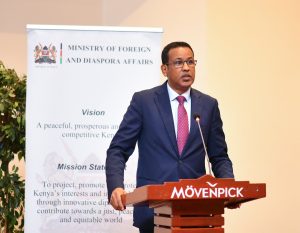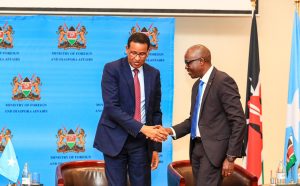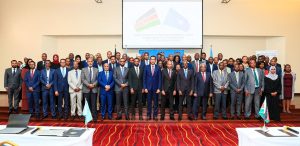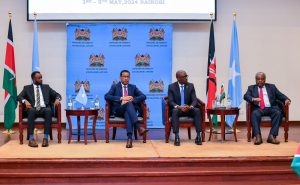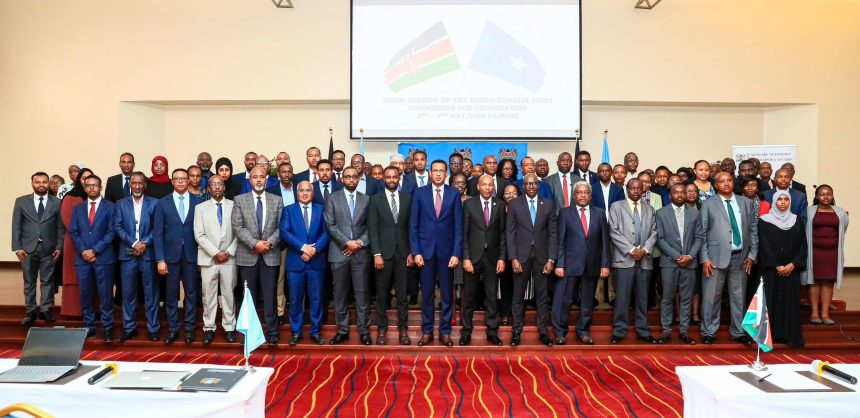(SONNA – Nairobi) In a moment for East African diplomacy Nairobi played host the third meeting of the Joint Commission for Cooperation (JCC) between Kenya and Somalia. This significant event underscores a dedication to improving economic and social ties. The session began with discussions paving the way for ministerial meetings and a joint high level session led by Kenyan Deputy President H.E. Rigathi Gachagua and Somali Prime Minister H.E. Hamza Abdi Barre.
The establishment of the JCC signifies an advancement in efforts to strengthen the bond between Kenya and Somalia, two nations that have faced challenges and opportunities throughout their histories. Discussions within the JCC are anticipated to address an array of topics such as trade facilitation, security collaboration, cultural interchange and joint development initiatives highlighting the aspects of this partnership.
Enhancing Economic Connections
The interaction between Kenya and Somalia has seen fluctuations over time marked by periods of disagreement well as cooperation. Yet recent developments indicate a shift towards stability and cooperation, in their engagement.
Somalia joining the East African Community (EAC) this year has played a role in bringing about positive changes creating a formal platform for economic and political collaboration.
Experts in economics point out the potential for increased trade and investments between the two nations due to relations. Kenya, known for its infrastructure and strong business environment is expected to gain access to markets and resources in Somalia. In return Somalia can benefit from Kenyas expertise and regional connections to speed up its efforts in conflict rebuilding and economic growth.
Focus on Security and Stability
A key area of focus for the Joint Commission for Cooperation (JCC) is enhancing security cooperation. Both Kenya and Somalia have faced challenges from groups that have had border impacts. The discussions will emphasize security measures such as sharing intelligence conducting military exercises and working together to combat terrorism and piracy that have long plagued the Horn of Africa region.
Promoting Cultural Exchange
In addition to politics and economics the JCC also aims to strengthen bonds between Kenyan and Somali people. Efforts may include programs, shared cultural events and language initiatives aimed at fostering understanding and appreciation.
These efforts are crucial, for building a sense of community and shared fate in the region.
Facing Challenges and Setting Expectations
Despite the outlook there are obstacles to overcome on the path. Issues like migration, refugee management and territorial conflicts have strained relations in the past. Could present challenges to cooperation. Both governments also need to navigate their dynamics and public opinion to garner broad support for joint initiatives.
Looking Ahead
As the Joint Commission for Cooperation progresses the outcomes of its meetings will play a role in shaping Kenya Somalia relations. Success in Nairobi could pave the way for agreements and establish permanent mechanisms for overseeing collaborative projects and policies.
Observers and stakeholders from East Africa and beyond are closely monitoring these developments, recognizing that closer ties between Kenya and Somalia could set an example for cooperation possibly inspiring efforts among other EAC members.
The launch of the Joint Commission for Cooperation in Nairobi signifies more than an occasion—it symbolizes hope, for a more unified, stable and prosperous East Africa.
In the realm of dialogues leading to significant interactions, the dedication of Kenya and Somalia to collaborate presents a bright future full of possibilities for their citizens establishing a model for cooperation, in the region’s future.
